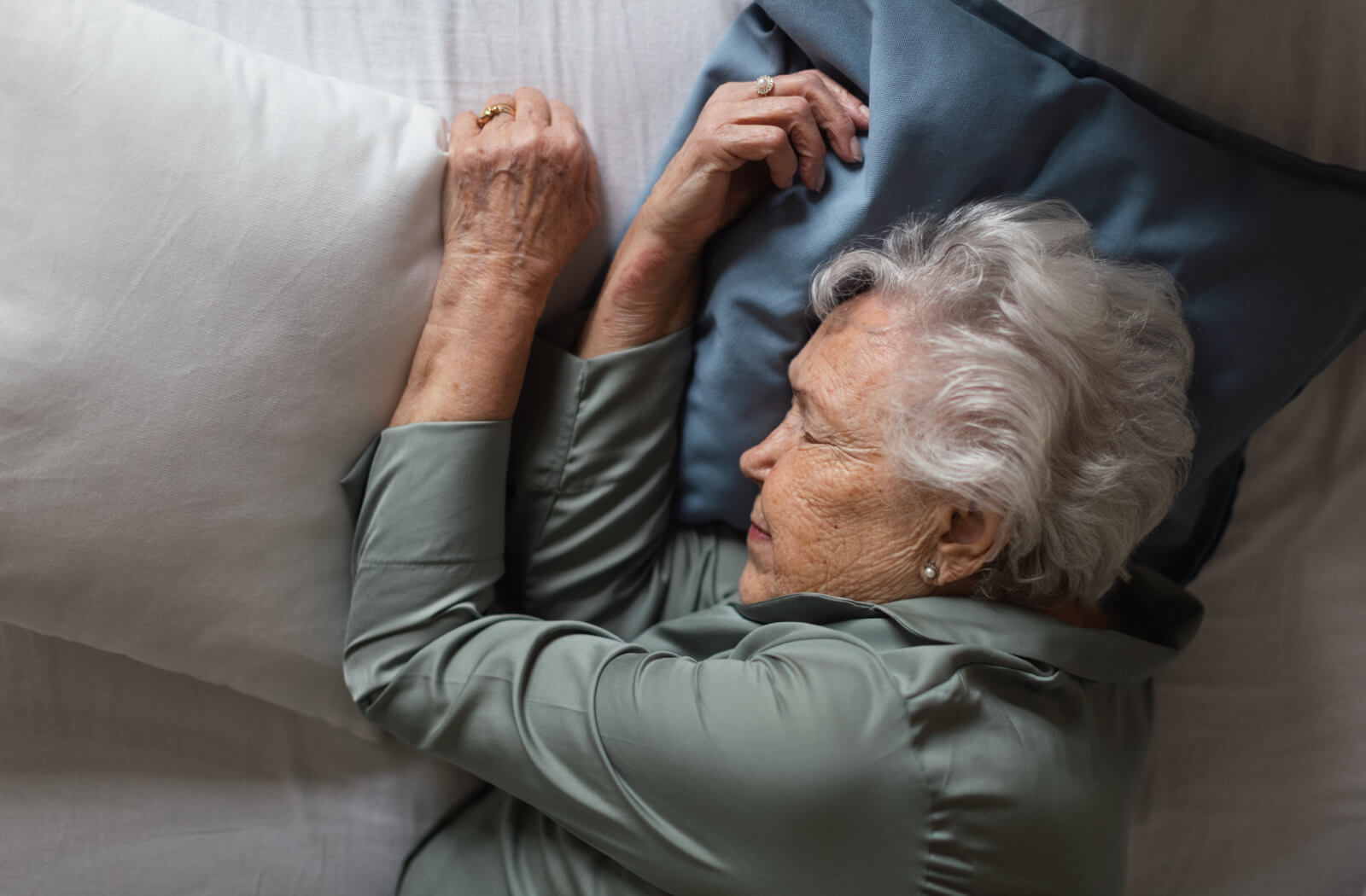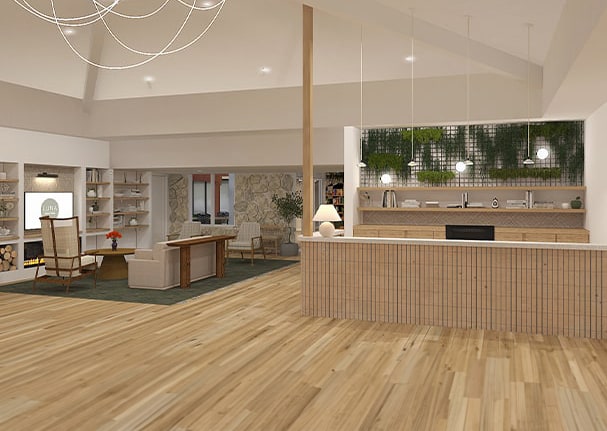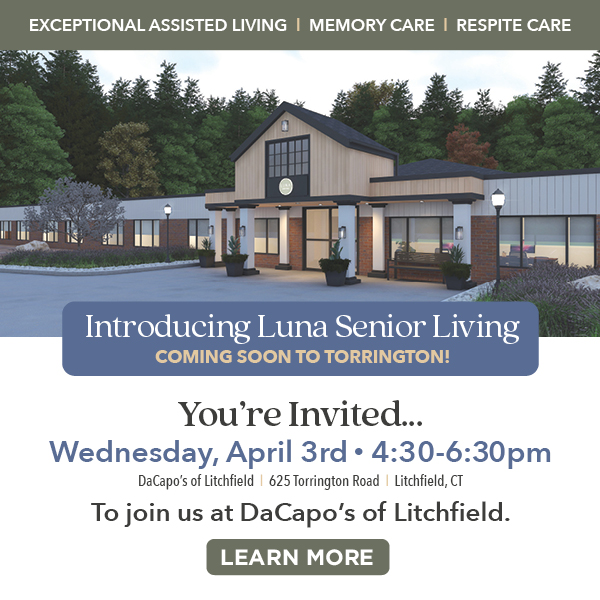Dementia is a condition that’s characterized by memory loss and cognitive decline. As the condition progresses, dementia can affect sleep patterns and increase daytime sleepiness.
Loved ones with dementia can find support and a nurturing environment in senior living communities that specialize in memory care. These communities can provide tailored assistance, understanding, and a sense of community for those navigating the complexities of dementia.
What Is Dementia?
Dementia is not a specific disease but rather an umbrella term for symptoms associated with cognitive decline and memory loss. It can affect a person’s ability to perform everyday activities and is often progressive, meaning symptoms worsen over time.
Types of Dementia
There are various types of dementia, each with its own causes and unique characteristics.
Alzheimer’s Disease
Alzheimer’s disease is the most common form of dementia, accounting for 60–80% of dementia cases. It’s characterized by the accumulation of abnormal protein deposits in the brain that leads to the death of nerve cells, resulting in memory loss, confusion, and difficulty with language and motor skills.
Vascular Dementia
Vascular dementia results from impaired blood flow to the brain. It’s often due to a stroke or other conditions that affect the blood vessels in the brain.
Lewy Body Dementia
Lewy body dementia is associated with abnormal protein deposits called Lewy bodies, leading to several cognitive and motor symptoms.
Frontotemporal Dementia
Frontotemporal dementia primarily affects the frontal and temporal lobes of the brain, leading to changes in personality and behavior.
Risks for Developing Dementia
Dementia is not a normal part of aging, but age is a known risk factor for dementia affecting those 65 and older. Other risk factors for developing dementia can include:
- Family history
- Race
- Poor heart health
- Traumatic brain injury
Symptoms of Dementia
Dementia manifests in various ways. Common signs include:
- Memory loss
- Confusion
- Difficulty communicating
- Impaired reasoning
- Changes in mood and behavior
- Difficulty with routine tasks
- Personality changes
- Challenges in problem-solving
Dementia & Sleep Patterns
Sleep disturbances are prevalent among those with dementia, and the relationship is bidirectional—the symptoms of dementia can disrupt sleep, and poor sleep can worsen dementia symptoms.
The circadian rhythm guides your sleep-wake cycle and is usually controlled by physical and psychological processes in response to our environment, such as light. Dementia changes the circadian rhythm, affecting the sleep schedule and quality of sleep.
Disrupted Sleep Patterns
Since people with dementia experience disruptions in their sleep-wake cycles, they may struggle with insomnia, frequent awakenings during the night, or daytime sleepiness. These disturbances result from the impact of dementia on the brain’s internal clock.
Sundowning
Sundowning is a phenomenon where individuals with dementia become more agitated or confused in the late afternoon or evening. It can contribute to difficulty falling asleep and increased restlessness during the night.
Sleep-Related Behavioral Issues
Some individuals with dementia may exhibit sleep-related behavioral problems, such as wandering, shouting, or hallucinations during the night. These behaviors can disrupt their sleep and also impact the sleep of caregivers and family members.
Excessive Sleep in Dementia
You can experience excessive sleeping in various types of dementia.
Excessive Sleep with Vascular Dementia
People with vascular dementia sleep a lot because of:
- Brain changes
- Depression
- Medications
- Brain aging
Excessive Sleep with Alzheimer’s Disease
People with Alzheimer’s disease tend to sleep during the day, even after a restful night’s sleep. A reason for this can include the loss of brain cells in regions of the brain that keep you awake.
Lewy Body Dementia & Excessive Sleep
Many people with Lewy body dementia experience changes in alertness, resulting in daytime sleepiness. Excessive daytime sleepiness (EDS) in Lewy body dementia occurs at a higher frequency and greater severity than Alzheimer’s disease and frontotemporal dementia. Causes can include:
- Obstructive or central sleep apnea
- Sleep fragmentation
- Restless legs syndrome
- Medications
- Depression
When Should Family Members Be Concerned?
If you notice your loved one sleeping too much, particularly after ruling out other health problems, consider consulting a healthcare professional for guidance or providing support by incorporating some sleep hygiene tips:
- Try getting the person involved in activities during the daytime to keep them awake and alert.
- Establish schedules and routines, such as setting wake and sleep times and limiting daytime napping.
- Regular physical activity can improve sleep quality and overall well-being. Engage in activities suitable for the individual’s abilities, such as gentle walks or chair exercises.
- Encourage activities that promote relaxation before bedtime, such as gentle music or reading.
- Create a sleeping environment that is comfortable and conducive to rest. Dim the lights in the evening, reduce noise, and maintain a comfortable room temperature.
- Keep track of your loved one’s napping habits and how they impact their general mood.
Support for a Loved One with Dementia
While the relationship between dementia and sleep may present challenges, family members can help implement good sleep hygiene to improve the sleep habits of loved ones with dementia.
If you are worried about an excessive sleeping pattern in a loved one with dementia, know that with proper care, they can lead a safe and fulfilling life. Contact Luna Senior Living for much-needed support.




















